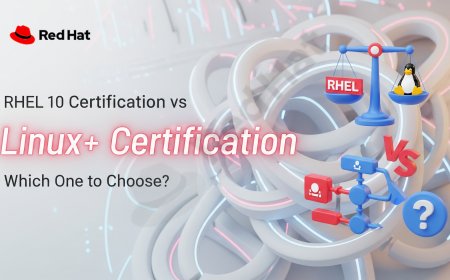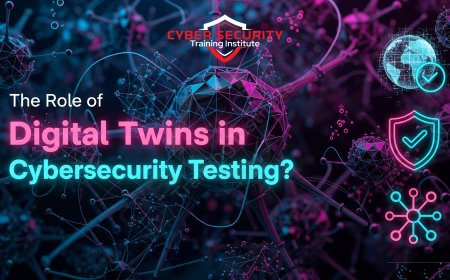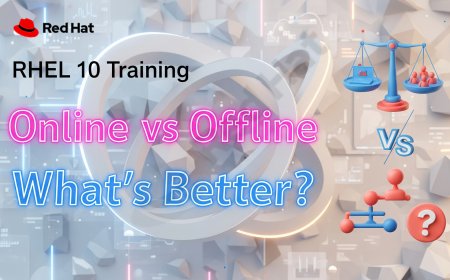Can AI Cybersecurity Tools Like Microsoft Security Copilot Replace Security Analysts?
In today’s fast-paced digital world, cyber threats are evolving at an alarming rate, putting immense pressure on security teams to stay one step ahead. Tools like Microsoft Security Copilot, powered by artificial intelligence, promise to revolutionize cybersecurity by automating tasks, analyzing vast amounts of data, and providing actionable insights in seconds. These advancements raise a pressing question: can AI tools like Security Copilot replace human security analysts? While AI offers incredible efficiency, the human element remains critical in navigating complex threats. In this blog post, we’ll explore the capabilities of AI cybersecurity tools, their strengths, limitations, and whether they can truly take the place of skilled analysts.

Table of Contents
- Introduction
- What is Microsoft Security Copilot?
- The Role of Security Analysts
- Capabilities of AI Cybersecurity Tools
- Strengths of AI Tools Like Security Copilot
- Limitations of AI Cybersecurity Tools
- Why the Human Element Matters
- Comparison of AI Tools vs. Human Analysts
- AI and Analysts: A Collaborative Future
- Conclusion
- Frequently Asked Questions
Introduction
Cybersecurity is a high-stakes field where split-second decisions can mean the difference between a secure network and a devastating breach. Security analysts have long been the backbone of this defense, tirelessly monitoring systems, investigating alerts, and responding to threats. However, the rise of AI-powered tools like Microsoft Security Copilot has sparked debate about the future of these professionals. Can AI, with its ability to process massive datasets and automate responses, replace human analysts entirely? Or is it better suited as a powerful assistant? This post will dive into what AI tools like Security Copilot can do, their limitations, and why human expertise remains essential in cybersecurity.
What is Microsoft Security Copilot?
Microsoft Security Copilot is an AI-driven cybersecurity tool that assists security teams in managing threats. Built on OpenAI’s GPT-4 and integrated with Microsoft’s security suite, including Defender XDR and Sentinel, it processes over 78 trillion daily security signals to deliver real-time insights. Security Copilot uses natural language processing to answer queries, summarize incidents, and suggest remediation steps, making it accessible to analysts of all skill levels. It aims to streamline tasks like threat hunting, incident response, and compliance auditing, but does it have what it takes to replace human analysts?
The Role of Security Analysts
Security analysts are critical to an organization’s defense against cyber threats. Their responsibilities include:
- Monitoring networks for suspicious activity.
- Investigating alerts to determine if they’re legitimate threats.
- Responding to incidents, such as isolating compromised systems.
- Conducting threat hunting to proactively identify risks.
- Ensuring compliance with regulations like GDPR or HIPAA.
Analysts bring intuition, contextual understanding, and strategic thinking to these tasks, qualities that AI struggles to replicate fully.
Capabilities of AI Cybersecurity Tools
AI tools like Security Copilot excel in several areas, making them powerful additions to security teams:
- Data Processing: Analyze massive datasets in seconds, far beyond human capabilities.
- Automation: Handle repetitive tasks like alert triaging and log analysis.
- Predictive Analysis: Identify potential threats by recognizing patterns in data.
- Natural Language Interface: Allow users to ask questions in plain English, simplifying complex queries.
- Integration: Work seamlessly with tools like Defender XDR, Sentinel, and third-party platforms.
For example, Security Copilot can summarize a phishing alert, correlate it with network activity, and suggest containment steps in moments, saving analysts hours of manual work.
Strengths of AI Tools Like Security Copilot
AI cybersecurity tools offer significant advantages that enhance security operations:
- Speed: Process and analyze data faster than any human, reducing response times.
- Scalability: Handle large volumes of alerts across complex environments.
- Upskilling: Enable junior analysts to tackle advanced tasks with AI guidance.
- Consistency: Deliver reliable results without fatigue or human error.
- Proactive Defense: Detect anomalies and predict threats before they escalate.
These strengths make AI tools invaluable for managing the growing volume and complexity of cyber threats.
Limitations of AI Cybersecurity Tools
Despite their strengths, AI tools like Security Copilot have limitations that prevent them from fully replacing analysts:
- Data Dependency: AI relies on high-quality, comprehensive data; incomplete data can lead to missed threats.
- False Positives/Negatives: AI may flag benign activity as malicious or miss subtle attacks, causing confusion.
- Lack of Contextual Understanding: AI struggles with nuanced situations requiring human judgment, like insider threats.
- Adversarial AI: Hackers can manipulate data to evade AI detection.
- Training Requirements: Teams need training to interpret AI outputs effectively.
For instance, Security Copilot might misinterpret a legitimate software update as a threat, requiring an analyst to verify the alert.
Why the Human Element Matters
Human analysts bring unique skills that AI cannot replicate:
- Contextual Awareness: Analysts understand organizational priorities, culture, and risks, enabling tailored responses.
- Intuition: Humans can sense when something “feels off,” catching threats AI might miss.
- Strategic Thinking: Analysts develop long-term security strategies, like policy changes, that AI cannot.
- Ethical Judgment: Humans make decisions balancing security, privacy, and business needs.
For example, an analyst might recognize a subtle insider threat by correlating employee behavior with external factors, something AI alone might overlook.
Comparison of AI Tools vs. Human Analysts
| Aspect | AI Tools (e.g., Security Copilot) | Human Analysts |
|---|---|---|
| Speed | Processes data in seconds | Slower, manual analysis |
| Scalability | Handles large datasets easily | Limited by time and resources |
| Contextual Understanding | Limited to data patterns | Strong, with business insight |
| Error Rate | Prone to false positives/negatives | Prone to human error, fatigue |
| Strategic Planning | Limited to tactical responses | Excels in long-term strategy |
AI and Analysts: A Collaborative Future
Rather than replacing analysts, tools like Security Copilot are designed to augment their capabilities. This collaboration offers:
- Enhanced Efficiency: AI handles repetitive tasks, freeing analysts for high-level work.
- Skill Bridging: Junior analysts can use AI to tackle complex tasks, reducing the skills gap.
- Better Decision-Making: AI provides data-driven insights, while analysts add context and judgment.
- Proactive Defense: AI detects threats early, and analysts devise strategies to prevent recurrence.
For example, Security Copilot can triage alerts and suggest actions, while an analyst verifies the threat and updates security policies to prevent future incidents.
Conclusion
AI cybersecurity tools like Microsoft Security Copilot are transforming the industry with their speed, scalability, and automation. They excel at processing data, triaging alerts, and guiding responses, making them invaluable for modern security teams. However, they cannot fully replace human analysts due to limitations like data dependency, false positives, and lack of contextual understanding. Analysts bring intuition, strategic thinking, and ethical judgment that AI cannot replicate. The future lies in collaboration, where AI augments human expertise, enabling faster, smarter, and more effective cybersecurity. By combining the strengths of tools like Security Copilot with human skills, organizations can build robust defenses against evolving threats.
Frequently Asked Questions
What is Microsoft Security Copilot?
It’s an AI-powered tool that assists security teams with threat detection, response, and analysis using natural language and Microsoft’s security data.
Can AI tools completely replace security analysts?
No, AI tools augment analysts but cannot replace their contextual understanding, intuition, and strategic thinking.
How does Security Copilot help security teams?
It automates tasks, summarizes incidents, and provides actionable insights to speed up threat response.
What tasks can AI tools like Security Copilot handle?
They handle alert triaging, log analysis, threat hunting, and compliance auditing.
Why can’t AI fully replace human analysts?
AI lacks human intuition, contextual awareness, and the ability to make ethical or strategic decisions.
What are false positives in AI cybersecurity?
False positives occur when AI flags benign activity as a threat, causing alert fatigue.
What are false negatives in AI cybersecurity?
False negatives happen when AI misses actual threats, leaving systems vulnerable.
How does AI improve analyst efficiency?
AI automates repetitive tasks, allowing analysts to focus on complex investigations and strategy.
Can junior analysts use Security Copilot?
Yes, its natural language interface helps junior analysts handle advanced tasks with guidance.
What is the role of human judgment in cybersecurity?
Humans provide context, intuition, and strategic planning that AI cannot replicate.
Does Security Copilot reduce the need for analysts?
It reduces repetitive workloads but doesn’t eliminate the need for human expertise.
Can AI tools handle insider threats?
AI can detect anomalies, but humans are better at understanding nuanced insider threat scenarios.
How does Security Copilot handle data?
It processes massive datasets from Microsoft tools and third-party integrations to provide insights.
Are AI tools vulnerable to attacks?
Yes, hackers can use adversarial AI to manipulate data and evade detection.
Does Security Copilot support compliance?
Yes, it helps audit systems to meet regulations like GDPR and HIPAA.
How fast is Security Copilot at responding to threats?
It can summarize incidents and suggest actions in seconds, speeding up responses.
Can small businesses use Security Copilot?
Yes, its pay-as-you-go model makes it accessible, though costs may be a challenge.
Do analysts need training to use Security Copilot?
Yes, training helps teams interpret AI outputs and configure the tool effectively.
Can AI tools develop security strategies?
No, AI focuses on tactical responses; humans are needed for long-term strategies.
How do I get started with Security Copilot?
Sign up for an Azure account, provision Security Compute Units, and access it via the Microsoft Security portal.
What's Your Reaction?
 Like
0
Like
0
 Dislike
0
Dislike
0
 Love
0
Love
0
 Funny
0
Funny
0
 Angry
0
Angry
0
 Sad
0
Sad
0
 Wow
0
Wow
0

















